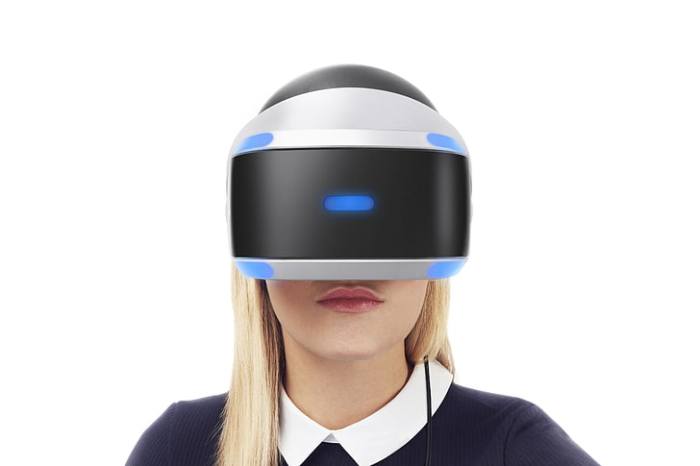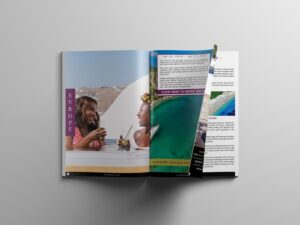
VR hotel preview apps are revolutionizing the way travelers explore accommodations before making a booking, offering immersive experiences that traditional platforms simply cannot match.
By leveraging cutting-edge virtual reality technology, these apps allow potential guests to virtually tour hotel rooms and amenities, providing a realistic glimpse that aids in decision-making while ensuring a more personalized booking experience.
Introduction to VR Hotel Preview Apps
Virtual Reality (VR) hotel preview apps revolutionize the way potential guests explore accommodations before making bookings. These innovative applications use immersive technology to provide a realistic representation of hotel rooms and facilities, allowing users to experience the ambiance and layout from the comfort of their own homes. By integrating VR technology into the booking process, hotels can enhance guest engagement and satisfaction.The technology behind VR in hotel bookings includes high-quality 3D rendering, panoramic images, and interactive elements that allow users to virtually walk through spaces.
This not only helps travelers visualize their stay but also aids in building trust in the chosen accommodation. The benefits of utilizing VR for potential guests are manifold, including reduced uncertainty about the property and the ability to compare options more effectively.
Features of VR Hotel Preview Apps
VR hotel preview apps boast a range of features designed to enhance user experience. Key features include:
- 3D Room Tours: Users can navigate through hotel rooms and amenities in a fully immersive 3D environment.
- User-Friendly Interface: Easy-to-navigate menus and options make accessing different hotel features simple for users.
- Interactive Elements: Features such as hotspots allow users to click on items for more detailed information.
- Integration with Booking Systems: Seamless booking options enhance the user experience, allowing users to reserve their stay directly from the app.
The integration of 3D room tours is a standout feature of these apps. Users can take virtual walks through rooms, viewing every detail from the layout to the decor. This contrasts sharply with traditional hotel booking platforms, where users rely primarily on two-dimensional images and written descriptions, which can often be misleading.
The Impact of VR on the Travel Industry
The introduction of VR technology is transforming how hotels market themselves. Hotels are increasingly utilizing VR previews to showcase their best features, resulting in increased user engagement. Statistics show that users are more likely to engage with VR content, leading to higher conversion rates for bookings when compared to traditional marketing methods. Moreover, VR influences travel decision-making processes significantly. Travelers are more inclined to finalize their accommodation choices after experiencing a virtual tour, as they feel more confident in their selections.
This technological shift not only enhances guest satisfaction but also helps hotels stand out in a competitive market.
Travel Advisory Integration with VR Apps
Travel advisories can be effectively integrated into VR hotel previews, providing crucial information for travelers. Real-time travel advisories are essential for ensuring traveler safety and adherence to regulations. VR apps can showcase updates about travel safety measures, local COVID-19 restrictions, and other relevant advisories, making them an invaluable resource for planning trips.Providing updates about travel safety and regulations in a VR environment enhances the user’s ability to make informed decisions, ensuring a secure travel experience.
Travelers can access comprehensive information all in one place, reducing the need to navigate multiple platforms for their travel information.
The Role of Travel Agents in Promoting VR Hotel Apps
Travel agents have a unique opportunity to leverage VR technology to attract clients. By incorporating VR hotel preview apps into their offerings, agents can enhance the booking experience and provide personalized recommendations based on the immersive experiences showcased in the apps. Training opportunities for travel agents in utilizing VR apps are becoming increasingly important, enabling them to guide clients effectively.
As travel agents adopt these technologies, potential commissions may increase due to higher booking conversions and the enhanced service they provide.
Travel Accessories and Enhancements for VR Experiences

To maximize the VR experience while traveling, certain accessories can be beneficial. These include:
- VR Headsets: High-quality headsets enhance immersion and provide superior visual experiences.
- Smartphones with VR Capabilities: Many modern smartphones can support VR applications, making them portable and accessible.
- External Battery Packs: Extended battery life ensures that users can enjoy VR experiences without interruption during their travels.
Travelers should prepare by ensuring their devices are compatible with the VR apps and understanding how to operate them effectively. A guide for the best devices for VR hotel previews can enhance user experience, facilitating smooth integration into their travel plans.
Future Prospects of VR in Travel and Leisure
The future of VR technology in the travel sector looks promising, with trends indicating a rise in the use of augmented reality (AR) in conjunction with VR. Innovations such as virtual concierge services and interactive city tours could emerge, providing travelers with enhanced experiences. The potential for VR in travel blogs and social media is also significant, as influencers may use VR content to showcase destinations in new and engaging ways.
This shift could redefine how travel experiences are marketed and shared, paving the way for a more interactive and immersive travel community.
Challenges and Limitations of VR Hotel Preview Apps
Despite the benefits, VR hotel preview apps face several technical challenges. Issues such as high development costs and the need for continuous updates to content can hinder widespread adoption. User experience limitations, like potential nausea during prolonged use or technical difficulties, can also detract from overall satisfaction.Accessibility remains a concern, as not all travelers have access to the required technology or possess the skill set to utilize VR applications effectively.
Addressing these challenges will be essential for ensuring that the advantages of VR technology are available to a diverse range of travelers.
Summary
As the travel industry continues to embrace technological advancements, VR hotel preview apps stand at the forefront, promising to enhance the way we choose our travel accommodations and shaping the future of travel marketing.
Questions and Answers
What are VR hotel preview apps?
They are applications that allow users to virtually explore hotel rooms and amenities using virtual reality technology.
How do VR hotel preview apps improve the booking process?
They provide immersive experiences, helping travelers make informed decisions based on realistic tours of the property.
Are VR hotel preview apps accessible to everyone?
While many devices support VR, technical challenges and user experience limitations may affect accessibility for some travelers.
Can travel agents use VR hotel preview apps?
Yes, travel agents can leverage these apps to enhance client engagement and offer a unique booking experience.
What are some travel accessories that enhance the VR experience?
Accessories like VR headsets, portable chargers, and comfortable travel gear can improve the overall experience while using VR apps on the go.





